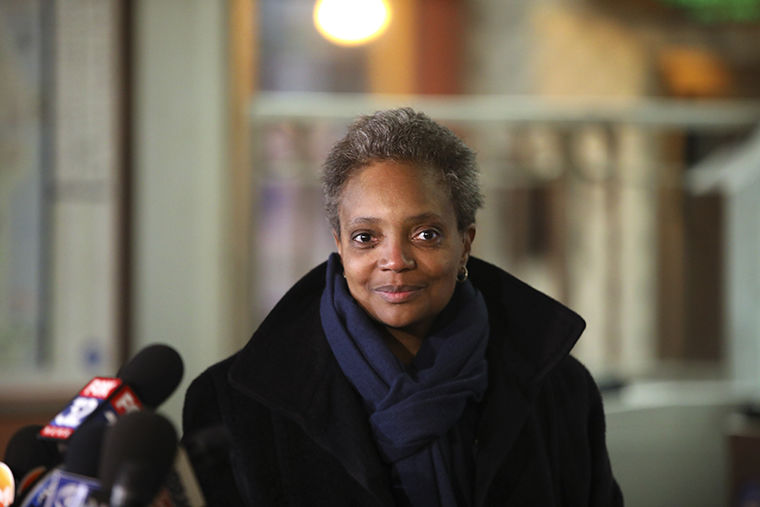‘This is what change looks like’: Chicago to have first black female mayor
March 7, 2019
When Chicago voters go to bed April 2, they will have likely elected the city’s first black woman mayor.
“This, my friends, is what change looks like,” mayoral candidate and former Chicago Police Board President Lori Lightfoot said during her election night speech.
The unofficial results showed Lightfoot with 17.4 percent of the vote. Cook County Board of Commissioners President Toni Preckwinkle finished second with 16.1 percent. The result pits the final two candidates against each other in a runoff election.
Since the end of Mayor Jane Byrne’s term in 1983, Chicago has not had a woman at the helm, and the city has never had a woman of color, nor openly gay person as mayor—Lightfoot is married to Amy Eshleman. Chicago has not had a black mayor since Richard M. Daley defeated Eugene Sawyer in 1989.
“I’m excited,” said Shanita Akintonde, associate professor in the Communication Department. “Because my scholarship, my research, a lot of what I do at Columbia as a professor is based on supporting women in particular, and specifically black women, as a black woman.”
At the polls, voter turnout fell across all age groups, but the 25–34 and 35–44 groups were hit the hardest, with approximately 180,000 fewer votes than the November Midterm Election total, said Jim Allen communications director for the Chicago Board of Election Commissioners. Voters have not been interested in municipal elections since Harold Washington was elected in 1983 and re-elected 1987, he added.
Akintonde said she is hopeful this result will spur young voters to vote at the runoff.
“Young people had an opportunity to take advantage of this wave, and they still do moving forward,” Akintonde said. “So I am hopeful they will catch on to the tailwinds of this historical opportunity and show up. Anytime change happens … it spurs action.”
Senior multimedia journalism major Ashley Parker said people of color will have more representation in government and equal opportunities with a black female in office.
“With [either of] them in office, they are going to know how a lot of us feel, and a lot of decisions that are going to be made are going to be more conscious and for us,” said Parker.
Parker said she wants Lori Lightfoot to win because of her focus on police reform, especially after Laquan McDonald, a black teenager, was killed by a white police officer.
Teacher Field Representative for the Chicago Teachers Union Christel Williams-Hayes attended Preckwinkle’s election night party. She said she hopes Preckwinkle will edge out Lightfoot in the runoff with her plans for education reform.
“Being a former teacher, she knows what the children need,” Williams-Hayes said. “She knows what the teachers and the staff need to have a productive day.”
Williams-Hayes said the CTU has been fighting to have an elected school board for years with Preckwinkle as a supporter. Lightfoot talked about an elected school board as well, but she did not get the endorsement of CTU.
This result should not be minimized but amplified because it sets a precedent for both male female students with grand aspirations, said Akintonde.
“As a faculty member, when I look out at the sea of faces of my students, I see potential,” Akintonde said. “I see [these election results] as a building block that sets the foundation for the next generation to now say, ‘They’ve done that, but I can do this.’”








